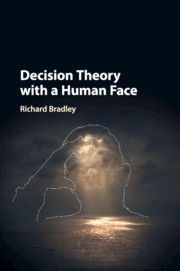Book contents
- Frontmatter
- Dedication
- Contents
- List of Figures
- List of Tables
- Preface
- Introduction
- PART I RATIONALITY, UNCERTAINTY AND CHOICE
- PART II PROSPECTIVE RATIONALITY
- PART III FACING THE WORLD
- 8 Multidimensional Possible-World Semantics
- 9 Taking Action
- 10 The Learning Agent
- PART IV RATIONALITY WITHIN BOUNDS
- Appendix: Proofs
- Bibliography
- Index
8 - Multidimensional Possible-World Semantics
from PART III - FACING THE WORLD
Published online by Cambridge University Press: 11 October 2017
- Frontmatter
- Dedication
- Contents
- List of Figures
- List of Tables
- Preface
- Introduction
- PART I RATIONALITY, UNCERTAINTY AND CHOICE
- PART II PROSPECTIVE RATIONALITY
- PART III FACING THE WORLD
- 8 Multidimensional Possible-World Semantics
- 9 Taking Action
- 10 The Learning Agent
- PART IV RATIONALITY WITHIN BOUNDS
- Appendix: Proofs
- Bibliography
- Index
Summary
PROSPECTS AND POSSIBLE WORLDS
Any account of mental representation must explain the parallels between the objects or contents of speech acts and the objects or contents of propositional attitudes.
(Stalnaker, 1984, p. 59)Agency requires a number of abilities: to recognise and represent salient contingencies or prospects, to form consistent attitudes to them and to act in the light of these attitudes. In the second part of the book I gave an account of the requirements that rationality imposes on the beliefs and desires that an agent forms in negotiating her way around her environment. In doing so I refrained from saying anything specific about the contents of these attitudes, simply bundling them under the category of ‘prospects’. This has certain advantages, not least that it allows this account of rationality to be paired with more than one conception of what the objects of belief and desire are. But on the downside it left open the question of whether the proposed rationality constraints are consistent with any account of prospects, a question whose importance is highlighted by the triviality results previously alluded to. So before tackling how decisions should be guided by beliefs and desires we need to address the question of what prospects are.
The philosophical importance of this question lies in the central role that an account of prospects must play in any general theory of thought, reasoning and action. Prospects serve not only as the objects of attitudes such as belief and desire but also as the contents of sentences that agents use to express such beliefs and desires and to reason about the world and their place in it. An agent who says ‘It will rain on Thursday’ is able to express her belief that it will rain on Thursday by uttering this sentence in virtue of the fact that it has as its content or meaning just the prospect that she believes true. When she reasons from this to the thought ‘I will get wet if I don't take an umbrella’ the inference she makes is assisted by the semantic relationships between these sentences and others.
- Type
- Chapter
- Information
- Decision Theory with a Human Face , pp. 129 - 156Publisher: Cambridge University PressPrint publication year: 2017

